The Forgotten Cure of Phage Therapy has been in existence since the 1920s. It is still widely used in countries such as Georgia, Russia, and Poland, and has been a part of their healthcare practice since its initial discovery. It is not openly used in the United States due to a lack of supporting clinical trials required by the FDA. Bacteria Beyond Borders is committed to raising awareness of Phage Therapy and how it can help combat Antimicrobial Resistance (AMR), as well as streamlining the diagnosis and treatment process, and making it accessible for all.
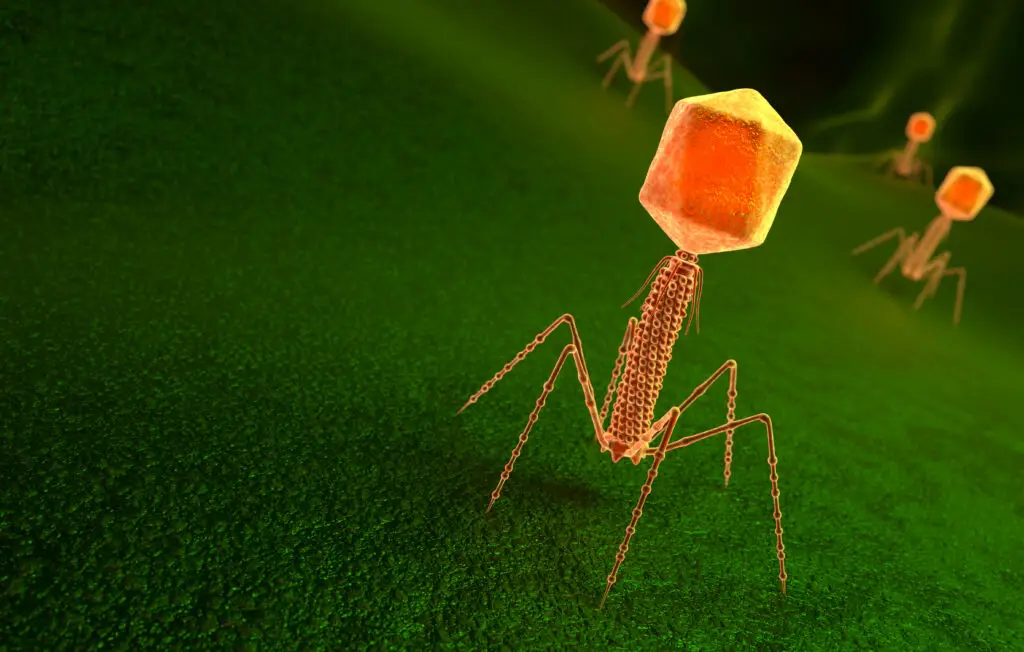
Phages, also known as Bacteriophages, is a term derived from Bacteria and the Greek word (Phagein) meaning “To Devour”. Named by discoverer Felix D’herelle.
Phages are widespread viruses found in soil, water, and in the human body. The number of phages are estimated at 10 to power of 31, which is 10,000,000,000,000,000,000,000,000,000,000. They are the single most abundant microbe on the planet.
There are also viruses called phages, which are harmless to humans and can treat illness and eradicate bacterial infections. These phage viruses infect and kill bacteria. For example, JD419 is one of many phages that has been proven effective in seeking out and destroying MRSA (Methicillin-resistant Staphylococcus aureus). MRSA is highly resistant to most and in some cases ALL antibiotics. There is also a T4 phage that is an absolute killing machine against E. coli. Phages are abundant within our bodies and are gaining increasing recognition as potential modulators in our gut microbiome.
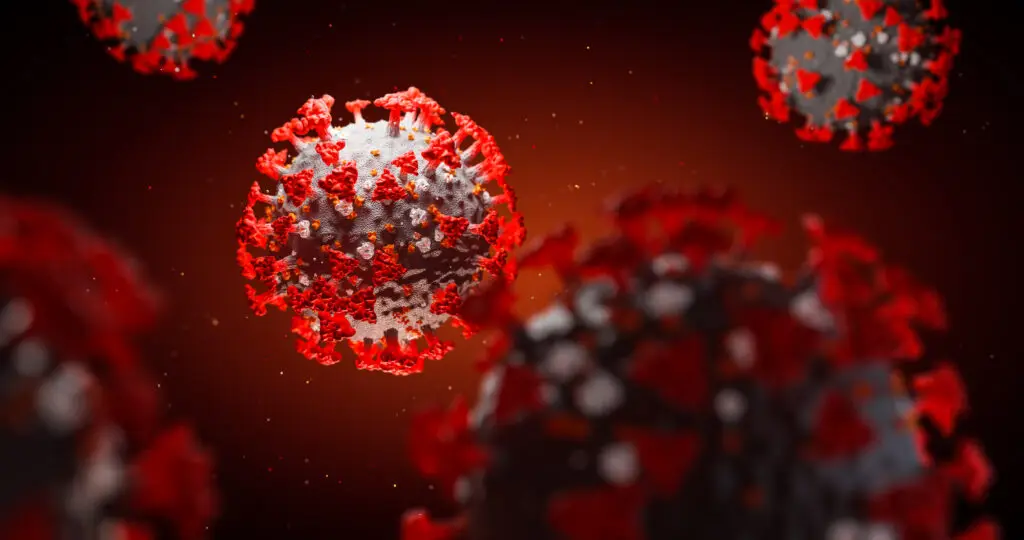
Viruses are microscopic organisms that infect hosts, like humans, animals, and plants. They consist of DNA or RNA and rely on infecting a host to reproduce or multiply.
When we think of viruses, the first thought that comes to mind are harmful pathogens such as COVID-19, Ebola, HIV, and Smallpox, to name a few. There are close to two hundred types of viruses known to cause infection, sickness, and death in humans.
Phage therapy is widely used in countries such as Georgia, Russia, and Poland, and has been a part of their healthcare practice since its initial discovery.
The first part of the treatment process begins with identifying the bacterial species causing the infection.
Once the correct pathogen has been identified, it is then possible to match up the correct strain of phage in which to use as the cure. This is a very critical part of the phage therapy process. If the proper phage strain is not matched up correctly with the dominant bacterial pathogen, the process could be ineffective. Research is currently being conducted to create synthetically engineered phages with a broad range of hosts, eliminating the need to match exact strains. Other studies suggest that phage therapy and antibiotics combined are more effective than either one on their own.
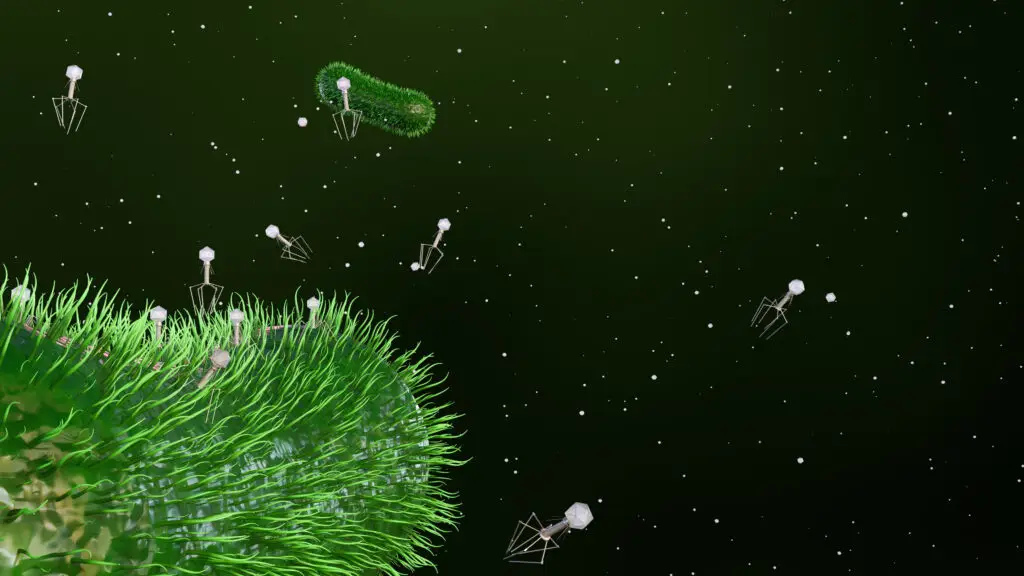
Currently, the majority of researchers and physicians rely on cultures to find the cause of infections, which is not an accurate method of identification. Cultures have many limitations, which has created the need to formulate a “cocktail” of phages to treat infections. Phage cocktails are made by combining multiple phages together in hopes that one of them will be the correct strain and will cure the infection. This type of approach, or guessing, has slowed down the success of what phage therapy is truly capable of accomplishing.
We believe the key to making phage therapy more successful is by upgrading the diagnostic used to identify the exact cause of any infection. Next Generation DNA Sequencing (NGS) is the clear “Gold Standard” of diagnostics available today. NGS has the capability to list all microbes present within a sample in order of dominant species, including those present in a biofilm. This would be extremely helpful when selecting the right phage to cure an infection. NGS eliminates the lengthy and cumbersome process of trying to grow bacteria on a petri dish in order to test multiple phages in hopes of finding the right match.
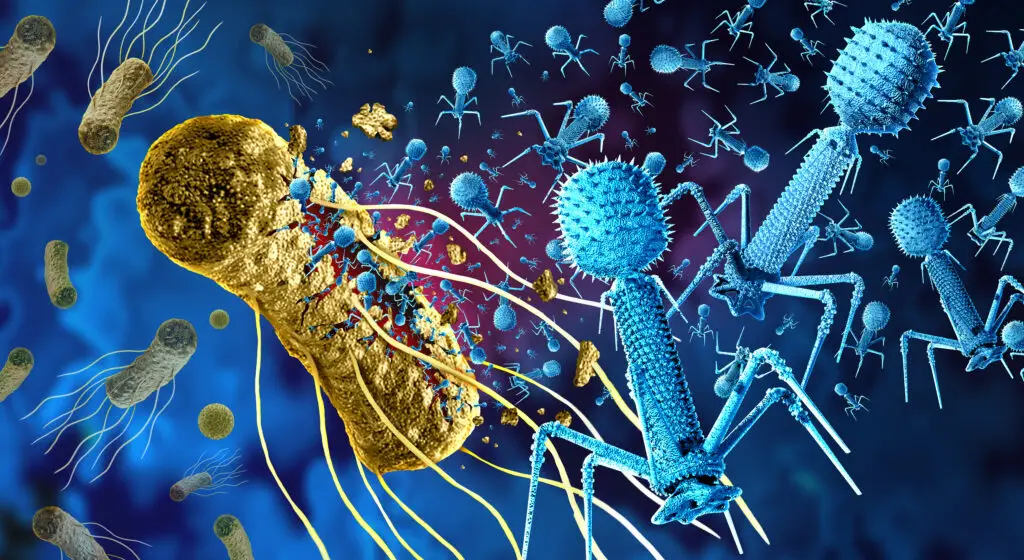
Bacteria Beyond Borders is committed to allocating funds raised towards the advancement of the phage to bacterial receptor relationship, and streamlining phage therapy as we know it.
Once the proper phage to bacteria relation is known, the infection can be treated by the following options:
Once treatment has been delivered, the phages seek out the pathogens and attach themselves. Phages then inject their DNA into the host (pathogen), which then begins to multiply inside to the point of bursting and releasing multiple phages to find more of the specific bacteria, repeating the process until the bacterium is gone. It is important to note that using phages in conjunction with the proper antibiotics is beneficial when implementing treatment.
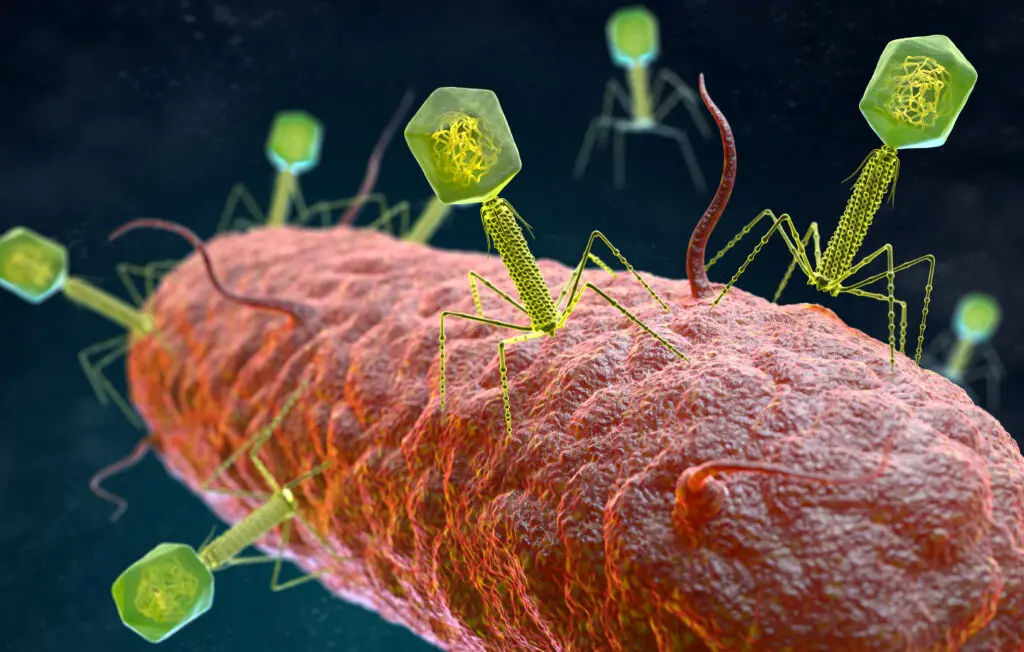
Phage is the answer for AMR!
There are endless possibilities when it comes to phage therapy from curing infections in animals, treating pathogens in food crops, and changing the practices in health care.
Phage therapy is the answer to fighting Antimicrobial resistance (AMR) due to the overuse and misuse of antibiotics. We are extremely late to the game with getting this therapy widely understood and utilized.
There are numerous bacterial infections that have become resistant, or immune, to our current arsenal of antibiotics. These bacteria (superbugs) have put the population into a life-threatening global pandemic.
Phage therapy is not only the key to slowing the progression of AMR, it will also start the reversal of the resistance by promoting changes in bacterial design making them more sensitive to our current antibiotics

Georgia, Russia and Poland have been actively using phage therapy since its discovery in the 1920s.
Tbilisi, Georgia is the epicenter of phage research and application with Eliava: http://www.eptc.ge and Phage Therapy Center: https://www.phagetherapycenter.com
Russia used phage therapy during World War II, to treat dysentery and gangrene.
Poland has the Hirszfeld Institute of Immunology and Experimental Therapy, Switzerland has The Phage Suisse, France has The Institut Pasteur, Australia has Phage Australia, Belgium has The Queen Astrid Military Hospital in Brussels, and the UK has a nonprofit initiative that launched in 2022.
These countries are currently working with their healthcare platforms and government agencies to actively implement phage therapy and are seeing lifesaving results.
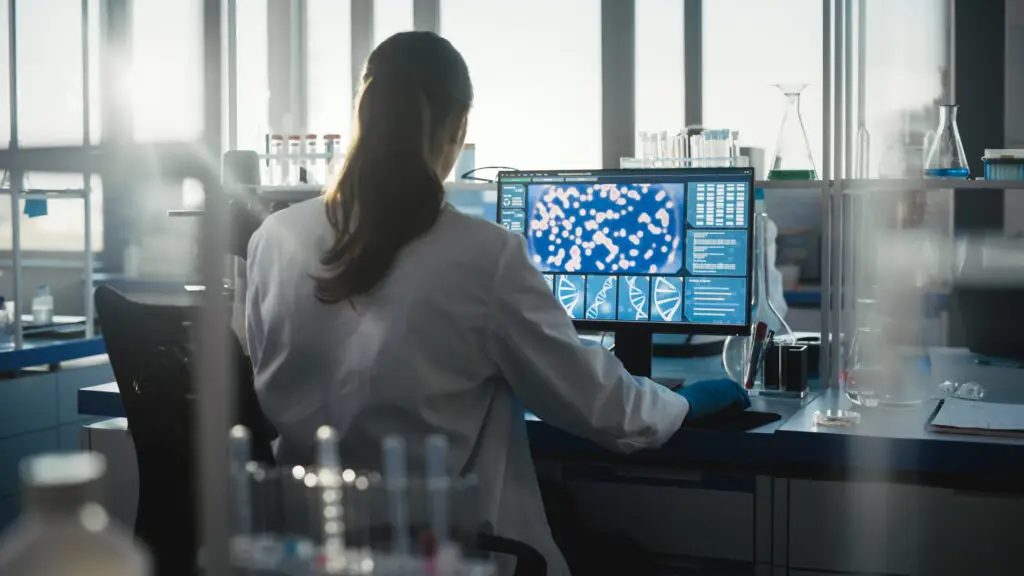
In the US, the governing bodies are very stringent on phage therapy and are requiring more in-depth clinical trials before allowing access to this therapy. A patient can receive special permission to use phage therapy from the FDA, (Compassionate Use and Right to Try), only after the patient has exhausted all efforts to treat the infection with antibiotics. This requirement only exacerbates the spread of antibiotic resistance in the population!
There are, however, labs that are very active in phage research and development in the US; University of Pittsburgh Department of Biological Sciences, Department of Medicine at the University of California San Diego School of Medicine, and Felix Biotechnology.
Paul E Turner, PhD is the Rachel Carson Professor of Ecology and Evolutionary Biology at Yale University. He is a thought leader and educator when it comes to phage and phage therapy. The Paul Turner Lab group currently develops novel-based therapies to treat antibiotic-resistance and attack cancer cells.
The information shared here is to educate on the fundamental understanding in regard to phage therapy. It is the goal and mission of Bacteria Beyond Borders to work with government agencies, health care, diagnostics, and research laboratories in efforts to someday soon see phage therapy change the course of our current failing treatment options, into a viable, and easy to access, lifesaving protocol.
For further education on phage therapy please visit https://www.ibiology.org/?s=phage+therapy , http://www.phagetherapyusa.com and https://vitalisphagetherapy.com/